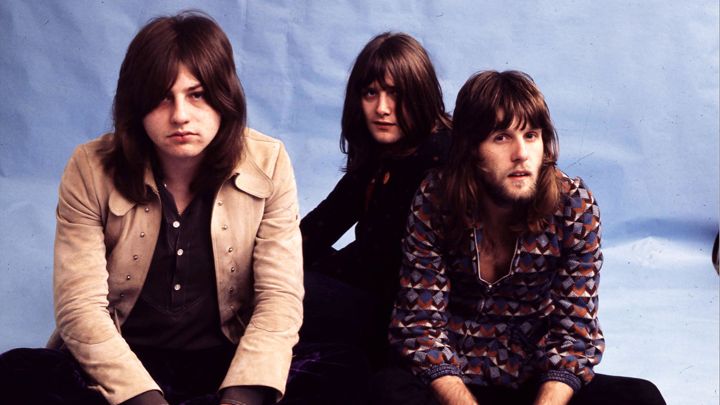By Dan Epstein, Richard Gehr and Jason Heller
Emerson, Lake and Palmer. Photo by LFI/Photoshoot.
“I was scared shitless,” the late Keith Emerson told Mojo in 2001, remembering the start of Emerson, Lake & Palmer’s 1977 tour of America ”” at the time, the most extravagant rock tour ever assembled. The setup legendarily included drummer Carl Palmer’s karate instructor, an army of roadies and, least practical of all, a full orchestra. Despite the cost and difficulty, “we had to be honest with our fans,” Emerson said. “My piano concerto on our double album, Works, which accompanied the tour, was augmented by an orchestra, and what you hear on the record is what you expect to hear when you buy the ticket to the show!”
That is the majesty of ELP. Veterans of a variety of Sixties British rock bands ”” Emerson played in the Nice, Palmer hailed from Atomic Rooster and Greg Lake migrated from King Crimson ”” ELP became one of rock’s first supergroups upon forming in 1970. In fact, ELP practically defined the term. Before punk came along and took progressive rock down a peg, the trio enjoyed the kind of success that could have only happened in the Seventies, when musicians strained at the confines of two-minute singles and dance-ready beats.
The result was a stretch of albums ”” as well as a smattering of fluke radio hits like 1970’s melancholy “Lucky Man” ”” that turned prog from a black-light-in-the-basement listening experience into a stadium-filling phenomenon. At their heart was Emerson, whose eternal quest for a bigger, grander sound (thanks to a bank of organs and synthesizers that grew to resemble a fortress onstage) helped make ELP one of the most accomplished and absorbing bands rock ever birthed. Here are a few of their shining moments.

